CHRISTOPHE HONORÉ: GUERMANTES (2021)
Between the scenes of a play that. . . almost wasn't?
Though this film has been a bit better received by the French critics, it's something from director Christophe Honoré like his 2014 Metamorphoses(R-V 2015) that takes him out of his usual zone, with different subject matter and cast, sketchy structure, and limited success. This one is indirectly about the pandemic, as well as a foray into impressionistic documentary territory. It also shows a side of Honoré the French know but his Anglophone fans are unaware of.: besides being a filmmaker he's also a novelist, playwright and theater director. He's shown his attraction to literary classics before. His film La Belle Personne is a modern adaptation of the 17th century novel by Madame de La Fayette, La Princesse de Clèves. Other plays he's authored include the 2012 Nouveau Roman, which brings to life novelists of that school; and Les Idoles, which celebrates writers who died of AIDS. They may be interesting, and so may Honoree's Proust play. But this film, despite its ostensible celebration of a large cast of actors, has the feel of a directorial vanity project.
The title Guermantes refers to a stage adaptation based around volume three of Marcel Proust's seven volume In Search of Lost Time, Guermantes Way (Le Côté de Guermantes). Honoré was brought in as a guest director at the French national theater, the Comédie Française, to put on his work. A New York Times article (Oct. 8, 2020) shows it was performed (from September 30 to November 14, 2020, as a web page of the Comédie Française also indicates. But in the film, rehearsals have been interrupted by lockdowns and reversals only to have a council of the theater vote for it to be permanently shut down. In the film, the cast members, or some of them, elect to camp out in the Théatre Marigny, where the Comédie Française had been temporarily moved during renovation of its main stage, and continue rehearsing, just for the experience.
The film purports to be an impressionistic, meandering (and a little over-long) record of this confusing experience for the actors, in which Honoré partly participates. There are a few moments from the play itself, notably the death of an old lady, which is hard on the actress doing the dying; a conversation between two men where a young third man manipulates a boom mike, with Honoré carefully managing the arrangement of the three figures. And there is a big, rather drunken outdoor picnic at a long table using plates stolen from the theater where various actors "act out." Though hardly any anecdote carries from scene to scene, we get ample evidence of the esprit de corps that binds these formidable performers and also the petty backstabbing and games they play.
From the relatively few glimpses we get of it, it's clear Honoré's Proust adaptation is modern and inventive and makes use of cinematic effects. Personal stuff is going on with actors. An actress is overheard in an emotional phone farewell, which the other cast members think is her resignation from the company. But when this is spread about she tells them they're wrong, that it was her longtime psychiatrist she was ending the relationship with. There are also some interesting moments with Honoré, who seems a kind of cherished outsider among the privileged actors. Not surprisingly, there's some gay stuff, involving him and others, including an older actor's much younger guy called Léolo (Léolo Victor-Pujebet). At the boisterous picnic Honoré withdraws, huddled on the floor (as he sometimes is), and asks one of the actors to say goodbye to the actors because he doesn't want to rejoin them. At a candid moment he says he never attends performances because he feels jealous of the public's being allowed to share an experience that previously was for him alone.
In what AlloCiné ranks as the most favorable review of this film, by Jean-Marc Lalianne in Les Inrockuptibles (Sept. 28, 2020), the writer declares "Christophe Honoré has created a beautiful poetic essay on the endangerment and resistance of art in times of health catastrophe." He asks "Is rehearsing a show that you know will never be performed in public, continuing the work just for the sake of it, a waste of time? And what is the point?" Honoré, he says, was "making a film of the tumult encountered by his show on Proust caught between two confinements." And he declares the director here "orchestrates a reconquest, an endless expansion of the powers of representation spreading its euphoric seeds over our sick world." He acknowledges that Honoré is "playing himself" - that this is an improvisatory fiction using cast members, not a documentary.
Generally Proust has defeated all adaptors, and that's arguably what has happened again here. But the Proust adaptation is only local color, making way for the main focus which is - what? As somewhat naive fan of Proust and his famous long novel, I might have preferred a film that was simply a transcription the play itself, to this glamorous but sketchy invention of actors playing actors. Perhaps in some future time when the pandemic is finally a thing of the past we may welcome a poetic evocation like this, of a period when time was "lost" in senses different from Proust's and much more mundane. But that would be with a total reedit.
Guermantes, 139 mins., debuted at Deauville Sept.11;, 2021 and was broadcast on French TV Sept. 24. It was included in the Mar. 3-13, 2022 UniFrance-Film at Lincoln Center Rendez-Vous with French Cinema.



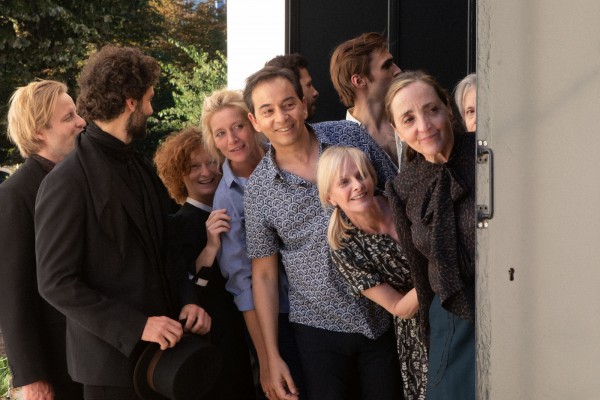

 Reply With Quote
Reply With Quote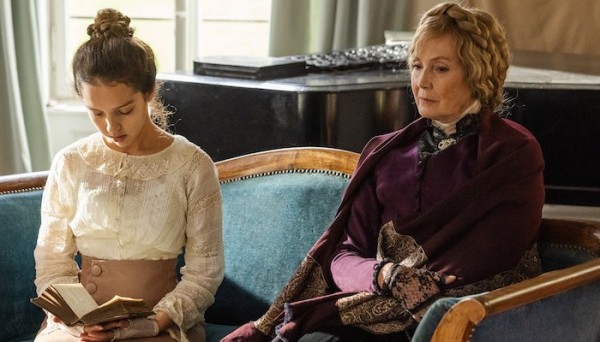

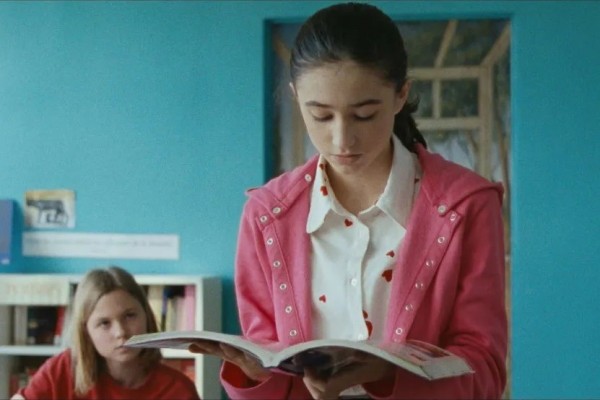
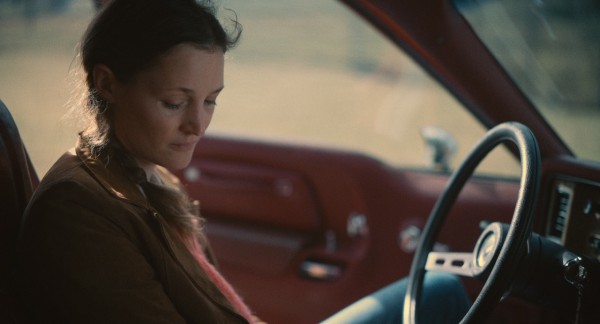
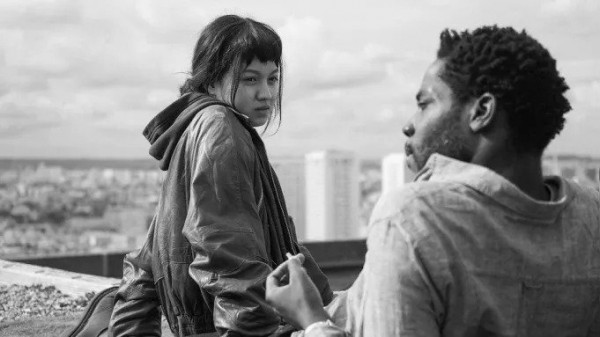
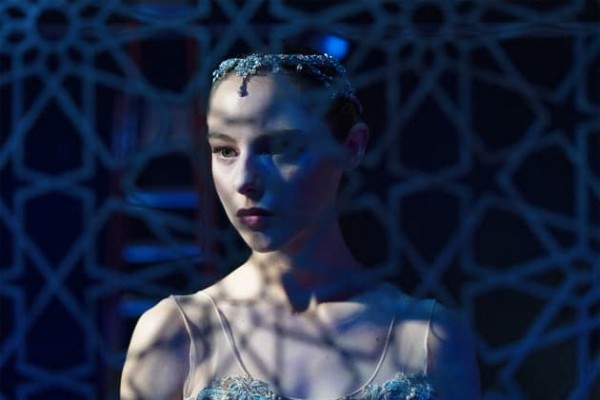

Bookmarks